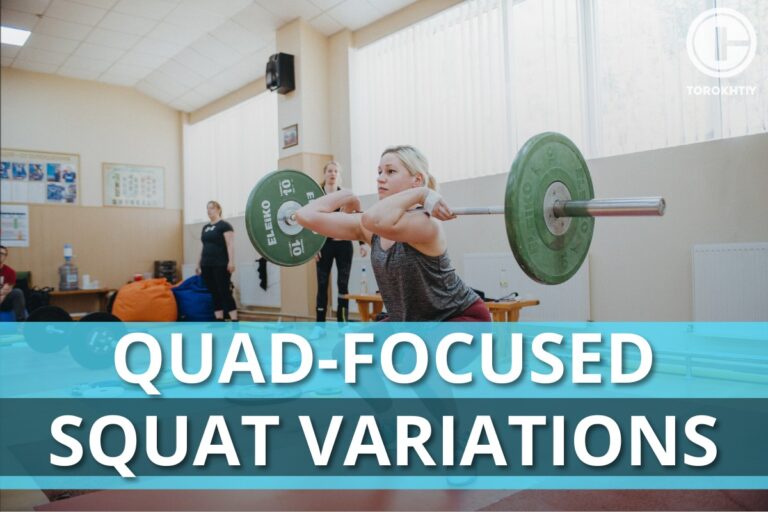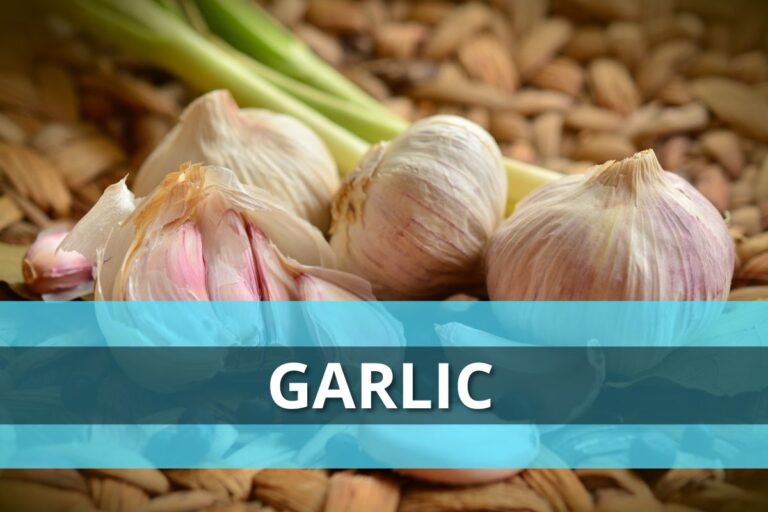BCAA vs Pre-Workout: Which Supplement Should You Choose?
Is BCAA a Pre-Workout? Is BCAA the same as Pre-Workout? Should I take BCAA or Pre-Workout? With all the different supplements out there, it can be difficult to have answers to questions like these, and understand which product is right for you.
In this article we’ll be going over the differences of BCAA vs Pre-Workout and which supplement is right for your goals. This article will be covering the pros and cons of these two popular supplements.
BCAA or Pre-Workout? BCAAs are used before, during or after a workout to help increase muscle growth, improve recovery and as additional source of energy for the muscles. Pre-workout is designed to give a boost of energy and focus due to high doses of caffeine.

What is Pre-Workout?
Pre-Workout is one of the most common supplements available and is designed to boost an athlete’s energy and focus before a workout. The main ingredient that usually contributes to this is caffeine. But Pre-Workouts contain a multitude of different ingredients including creatine, beta-alanine, citrulline malate or arginine and many others to enhance exercise performance. Give you some examples.
Some Pre-Workouts contain ingredients like beta-alanine, which can increase muscle carnosine levels. This may help reduce fatigue and improve endurance during high-intensity exercise. Certain Pre-Workout supplements include ingredients like citrulline malate or arginine, which can promote vasodilation (widening of blood vessels) and improve blood flow to the muscles. This can result in a better “pump” feeling during workouts.
Pre-Workout supplements vary greatly from brand to brand, so deciding which ingredients and what caffeine level you want is important before making a decision. Ultimately, all Pre-Workouts are designed to serve the same purpose of improving your performance in the gym.
Pre-Workouts aren’t necessary to perform well in the gym or have a healthy diet, but they can be helpful if you have an especially tough workout routine.

What is BCAA?
BCAAs are a group of essential amino acids, including leucine, isoleucine, and valine. They are called “branched-chain” because of their chemical structure. BCAAs play a crucial role in protein synthesis and muscle recovery.
BCAAs are known for their ability to reduce muscle damage and promote muscle recovery after intense exercise. They can help decrease muscle soreness and improve the rate of muscle protein synthesis. Also BCAAs can be used as an additional source of energy during workouts, particularly when carbohydrate stores are depleted. They can help prevent muscle breakdown and provide fuel for your muscles.
There’s more. BCAAs may also help reduce exercise-induced fatigue by decreasing serotonin production in the brain. Serotonin is a neurotransmitter associated with fatigue, and BCAAs can potentially delay its rise during exercise.
Getting enough BCAAs in your diet through either diet or supplementation will help with improved muscle growth, improved rest, and reduced fatigue during workouts.
For most people following a diet rich in protein, they will naturally get enough BCAAs to make supplementation redundant. However, for people following a diet lower in complete protein (such as vegans and vegetarians), BCAA supplementation can be helpful to reach their goals.
Also, when it comes to athletes with a lot of intense training, some increase in BCAA intake can provide additional benefits even with a protein-rich diet. Although these possible benefits remain minor, many athletes choose to include some BCAA supplements in their diets.

Pre-Workout vs BCAA
Ultimately, Pre-Workout and BCAA are designed to serve two very different purposes. Pre-Workout is used to boost performance in the gym, while BCAAs are used to supplement a specific set of amino acids that may be lacking in someone’s diet.
With this being said, they are similar in some ways in how they are processed, their nutritional information, and how much they cost. These similarities can cause confusion about what to choose, Pre-Workout or BCAA. Let’s take a close look at these characteristics before moving on to the more fundamental pros/cons points.
1. Processing, Ingredients, and Dosing
Both Pre-Workout and BCAA come most commonly in powdered form, however, both come in capsules as well. The powder is usually cheaper, but in some cases capsules are simply more convenient. Choose what suits you best.
As with any processed supplement, you want to ensure that you are getting the ingredients you want at an effective dose.
For BCAA supplements, the product should contain leucine, valine, and isoleucine, however, most supplements contain them in sufficient quantities. A typical dose of the supplement is about 10-15 g, which is enough for both men and women in the case of a protein-rich diet. You probably want to avoid supplements with artificial flavors, sweeteners, and preservatives. After all, they are completely unnecessary for this supplement, why pay for something unnecessary and possibly even affecting your health?
For Pre-Workouts, you should be conscious of the caffeine in each dose, as well as what other ingredients the supplement contains. There are so many options here that it’s hard to give brief advice. However, there is a universal method: start with half of the manufacturer’s recommended dose and watch your reactions. You can increase the dose to the recommended dose if everything goes well and you need a more pronounced effect.
As for available flavors and artificial sweeteners – it’s a matter of your taste, there are enough options on the market to satisfy everyone.

2. Calories
BCAAs contain 40 calories per 10 grams serving, all calories from amino acids. Sometimes a supplement may contain an additional 1-5 kcal from carbohydrates.
Pre-Workouts range from 0-20 calories per serving, with these usually coming from 1-5g of carbs. Be careful though, some Pre-Workouts contain noticeably more calories from carbohydrates, mainly to provide energy for long workouts.
We recommend sticking to low-calorie Pre-Workouts and BCAAs without carbs: just efficiency and nothing extra.
3. Price Range
Based on results from Amazon’s top supplements, this is how much you can expect to pay for BCAAs or Pre-Workout. The range for BCAAs appears to be between $8-10 per 100g. With servings typically being around 10g, you’ll be paying around $.80-1 per serving. For Pre-Workouts, the price range is slightly higher at $10-15 per 100g. Serving sizes are slightly lower, being around 7.5g. Cost per serving varies a lot, you can expect prices in the range of $0.5-2.5. Overall, if you choose products at reasonable prices these two supplements come at a similar price point.

Pre-Workout vs BCAA: Summary
Based on results from Amazon’s top supplements, this is how much you can expect to pay for BCAAs or Pre-Workout. The range for BCAAs appears to be between $8-10 per 100g. With servings typically being around 10g, you’ll be paying around $0.80-1 per serving. For Pre-Workouts, the price range is slightly higher at $10-15 per 100g. Serving sizes are slightly lower, being around 7.5g. Cost per serving varies a lot, you can expect prices in the range of $0.5-2.5. Overall, if you choose products at reasonable prices these two supplements come at a similar price point.
| Product | Price Range Per Serving | Calories Per Serving | Best For | Value For Money | Side Effect Risks |
|---|---|---|---|---|---|
| Pre-Workout | $0.5 – $2.5 | 0-50 | All Purposes | Mid/High | Moderate |
| BCAA | $0.8 – $1 | 40-50 | Cutting | Low | Low |
Pros/Cons of Pre-Workout
Positives:
Could be better:
Pros/Cons of BCAA
Positives:
Could be better:
Pre-Workout vs BCAA: When to Use Each
While both supplements have their own specific use cases, the difference between bcaa and Pre-Workout are clear, with Pre-Workout being the more complete and effective supplement.
If you’re looking for an energy boost, increased focus, and improved performance during your workouts, a Pre-Workout supplement may be more appropriate. With the added energy the supplement will provide, as well as the other useful ingredients found in an effective formula, Pre-Workouts will give most athletes a genuine boost in their performance and results. Even if someone is caffeine sensitive, there are low caffeine options available for those who still want the benefits of the other ingredients.

BCAAs on the other hand, are only really useful for a small portion of the population. While vegans and vegetarians will likely benefit from additional supplementation of BCAAs, it will be largely unnecessary for most people to achieve maximal results. However, if you train very hard (or very long, or both) and focus on muscle recovery and reducing muscle soreness, BCAAs can be a suitable option. Sometimes even a little help isn’t out of place.
Some individuals even combine both BCAAs and a Pre-Workout supplement to get the benefits of both. Given that supplements provide different effects, this approach can also justify itself.
Pre-Workout and Bcaa We Recommend
Pre-Workout – TRANSPARENT LABS LEAN Pre-Workout
Transparent Labs is one of the most recognizable and trusted supplement brands on the market. Their products are consistently high quality, and their LEAN Pre-Workout is no exception. Featuring a solid dose of caffeine at 180mg per serving as well as efficacious doses of citrulline malate and beta alanine, this Pre-Workout is sure to give you an edge during your workouts.

If you’re trying to decide between BCAA vs Pre-Workout for weight loss, this supplement has a weight management formula designed to help with cutting weight, which most BCAA supplements do not have.
BCAA – Huge Supplements BCAA
Another popular and trusted supplement brand, Huge supplements has one of the best BCAA supplements on the market. On top of having a solid dose of BCAAs, the product also contains doses of other amino acids, as well as coconut water powder and electrolytes for hydration. This makes it useful as an intra workout drink, as well as purely a BCAA supplement.

It also comes in a wide variety of flavors, making it genuinely enjoyable to drink.
FAQ
What Do Bcaas Do Before Workout?
If you’re consuming enough BCAAs, either through diet or supplementation, they will help to decrease fatigue, improve recovery, and increase muscle growth. There will likely be little difference in performance based on when you consume BCAAs during the day, whether it’s before, during, or after your workout.
Should I Take Bcaa or Pre-Workout?
Most people will likely notice a more significant boost in performance from a well formulated Pre-Workout supplement. However, if you are vegan or vegetarian, you should seriously consider BCAA supplementation to make sure you’re getting enough of these essential amino acids in your diet to promote muscle growth and improve performance. You can also combine these supplements to get the benefits of both.
Is Bcaa the Same as Pre-Workout?
No, BCAAs and Pre-Workout are two very different supplements with different purposes. BCAAs are a set of essential amino acids that can be found in many different foods.
Supplementation is useful for those who struggle to get enough in their diet. Pre-Workout on the other hand is a supplement designed to give a boost of energy to athletes, most commonly through a combination of caffeine and other nootropics.
Can You Mix Bcaas With Pre-Workout?
Yes, if you decide to take both supplements, there is no reason you cannot mix BCAAs and Pre-Workout. Just be conscious of the flavors of both supplements to make sure your drink will still taste good. Some supplements will even contain Pre-Workout and BCAA together, making them a pre mixed solution to begin with.
Conclusion
Overall, deciding between branched chain amino acids vs Pre-Workout can be difficult. Ultimately, they are two very different supplements that have different purposes.
While BCAAs can be useful as a dietary supplement mainly for vegans and vegetarians, supplementation will be unnecessary for most athletes. However, some athletes have reported improved performance with this supplement. Pre-Workouts on the other hand will give most athletes a genuine, noticeable boost in their energy levels, focus, and overall performance. Our top choices for each supplement are TRANSPARENT LABS LEAN Pre-Workout and Huge Supplements BCAA respectively.
What are your thoughts on Pre-Workout and BCAA? Do you consume either supplement? What product do you like? Let us know your thoughts in the comments below!
Also read:
- How Much Caffeine in Pre Workout
- What Is Dmaa Pre Workout
- Is Creatine a Pre Workout
- Is Coffee a Good Pre Workout
- Does Pre Workout Help You Lose Weight
- Does Pre Workout Make You Sweat More
- Best Organic Pre Workout
- Best Caffeine Free Pre Workout
- Best Pump Pre Workout
- Best Non Stim Pre Workout
References:
- Effects of creatine supplementation // PubMed: https://pubmed.ncbi.nlm.nih.gov/14636102/
- Beta-Alanine // PubMed: https://pubmed.ncbi.nlm.nih.gov/26175657/
- Review of citrulline malate supplementation // NCBI: https://www.ncbi.nlm.nih.gov/pmc/articles/PMC8571142/
- Branched-chain amino acids // AIS: https://www.ais.gov.au/__data/assets/pdf_file/0013/1000417/36182_Supplements-fact-sheets_BCAA-v4.pdf
- Caffeine: How much is too much? // MayoClinic: https://www.mayoclinic.org/healthy-lifestyle/nutrition-and-healthy-eating/in-depth/caffeine/art-20045678
- Risk Assessment on the Use of Oral β-Alanine Supplementation // PubMed: https://pubmed.ncbi.nlm.nih.gov/30980076/
Why Trust Us?
With over 20 years in Olympic Weightlifting, our team does its best to provide the audience with ultimate support and meet the needs and requirements of advanced athletes and professional lifters, as well as people who strive to open new opportunities and develop their physical capabilities with us.
By trusting the recommendations of our certified experts in coaching, nutrition, dietology, and sports training programming, as well as scientific consultants, and physiotherapists, we provide you with thorough, well-considered, and scientifically proven content. All the information given in the articles concerning workout programming, separate exercises, and athletic performance, in general, is based on verified data. We ensure that you can rely on our professionals’ pieces of advice and recommendations that can be treated as personalized ones which will benefit you and fully meet your needs.
The product testing process is described in more detail here
Author: Oleksandr Maksymenko
Certified Sports Nutritionist,
MSc Sports Dietetics
Specializing in: Weight management, Fitness / Sports nutrition
Oleksandr is a professional fitness nutritionist certified by the Fitness Professional Association (FPA). He follows the principles of evidence-based dietetics and fosters a healthy relationship with food in his clients, ensuring there are no strict prohibitions on their favorite foods or frequent lapses. His primary goal is not only to achieve results for you but also to sustain them over the long term, all while enjoying tasty and delicious food.









